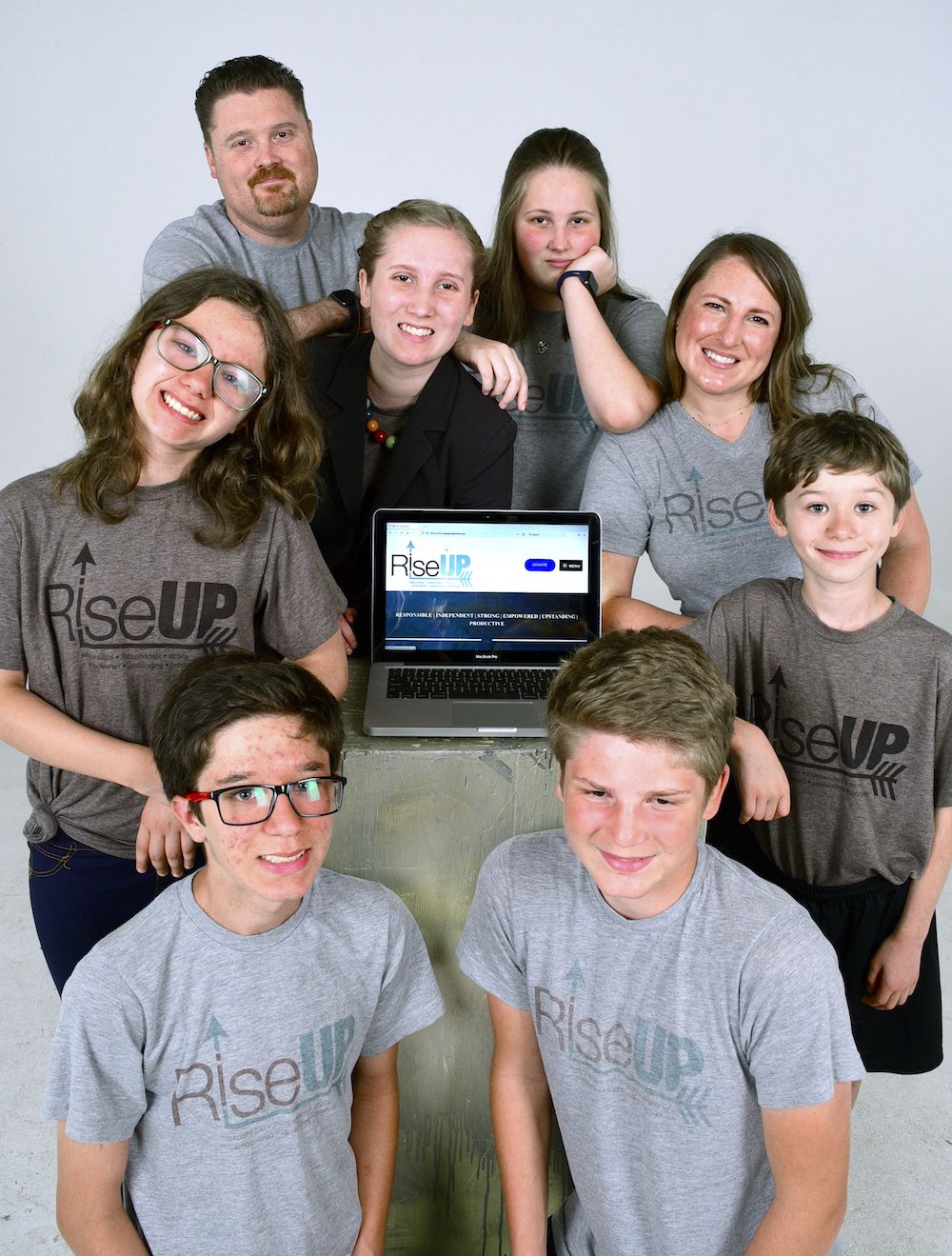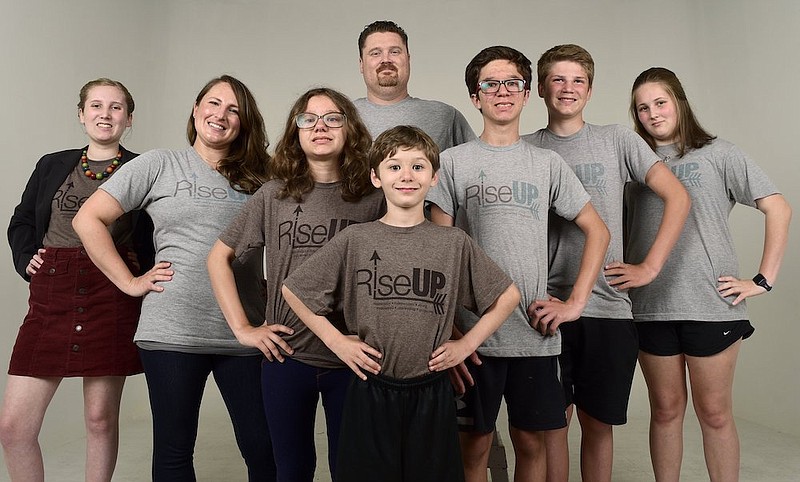Sandy Pricer is a helper. Armed with a bachelor's and master's in social work, she worked as a caseworker for Chattanooga's Partnership for Families, Children and Adults before starting her own nonprofit in September.
Mirroring one of her roles with the Partnership, she offers life skills classes for children ages 13-23 through her 501(c)(3) Rise Up Cooperative. While her focus is on kids in foster care - an audience she has experience with both through the Partnership and her own family - she welcomes all who are interested.
Class topics range from practical skills like how to use public transportation to leadership skills like conflict resolution. Some of her own kids' personal favorites have been a Q-and-A session with a police officer and a lesson on money management. Pricer has three biological children and three former fosters whom she and her husband adopted.
Here, in her own words, she shares the idea behind Rise Up, as well as her inspiration for launching it.
> Over years of reading self-help books, I personally learned so much, and I see what my biological children have gotten from having a stable home and having parents that have poured into ourselves and them. When we got foster kids, I saw how different they were because they lacked a stable background and parental involvement.
> But it's almost like when they hit puberty their brains have the ability to start rewiring if they're in the right environment.
> I didn't want to compete with the schools. There are so many other programs out there like tutoring and stuff. I wanted to offer something they couldn't get elsewhere necessarily.
> When I was teaching life skills to the group homes, I had a teen come up to me many years later and thank me for what I was doing. She told me I changed her life. I didn't think they were listening, they were only there because they had to be. ... But apparently I had at least gotten through to one.
 Staff Photo by Robin Rudd / Sandy Pricer and her husband, Joe, have biological and adopted former fosters who are teens, and recently started a nonprofit, RiseUp, to help equip other teens with life and leadership skills. From left front, Jake and Blake, from left back, Izzy, Joe, Katie, Ally Sandy and Nate.
Staff Photo by Robin Rudd / Sandy Pricer and her husband, Joe, have biological and adopted former fosters who are teens, and recently started a nonprofit, RiseUp, to help equip other teens with life and leadership skills. From left front, Jake and Blake, from left back, Izzy, Joe, Katie, Ally Sandy and Nate.> It really motivated me to do this, too, because they have so few people in their lives.
> It's really easy to get volunteers because they only have to commit to a 30- to 60-minute workshop, yet they're doing something they're passionate about and sharing something they're experienced in. That's something the volunteers have shared with me that they really enjoy - it's not a huge time commitment but they're still able to touch lives.
> Different presenters do different things. Some come in with a PowerPoint. Some come in just wanting to talk with the kids and answer questions. Some come in with an action plan.
> Four of my six are teenagers, so I always ask them to join. My kids - and I know that doesn't help because they're my kids, but I promise I didn't ask them to say it (laughs) - told me they enjoy it. In the beginning they were like, "Do we have to do it?" and now they get on every week without hesitation and without question.
> Overall, internet safety was a [popular] one. (And) mental toughness or attitude, anything to do with overcoming and making yourself a better, stronger person. And anything finance. Oh, and public speaking.
> I thought we would be in-person sooner than we have and kids would come to us and maybe we would go into schools, that sort of thing. Because we're (still) virtual, it's kind of been a blessing in disguise. We've been able to bring in presenters from Colorado and California and kids can join from [anywhere].
> We offer parent workshops, too, once a month. This month we had Love's Arm come in and they talked about sex trafficking and the dangers and how to keep kids safe. The month before, we had an accountant ... and she talked about how to talk to kids so they'll listen.
> Anybody that works with teens or kids in any capacity I invite and welcome them in. I really feel strongly about teaching these teens and pouring into these teens, but what are they going home to?
> If we can help the parents and [caregivers], in return they can help us help the teens.
> I plan to find a location by mid- to late August to do in-person (classes). Through summer, every Tuesday we're going to continue with virtual each week (for kids).
> I'm having a really hard time finding a place for us, and I'm hearing from others (nonprofits) that they are too. The current goal is to figure out how to do a huge capital campaign to buy a building in order to rent out space to other nonprofits.
> I'm thinking $500,000 to $1 million is what we're going to need to raise.
Learn more
For more information or to get involved, visit riseupcooperative.org. Pricer is looking to build a network of volunteer experts to lead various programming, and is seeking financial contributions to help her secure a building. Classes are currently taught via Zoom on Tuesdays at 7 p.m. for teens, and caregivers are welcome to join. They are open to all, free of charge. “You don’t have to register at this point. Just get the Zoom link and if you’re interested in the topic and available, just jump on,” she says.
